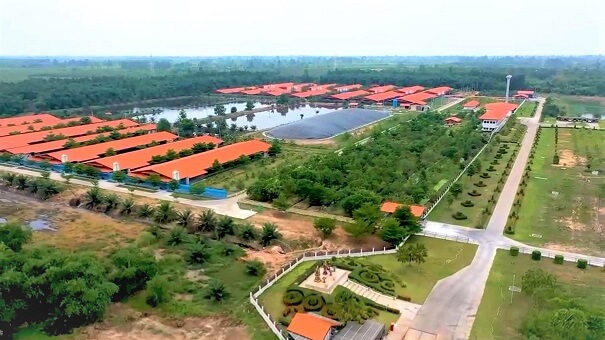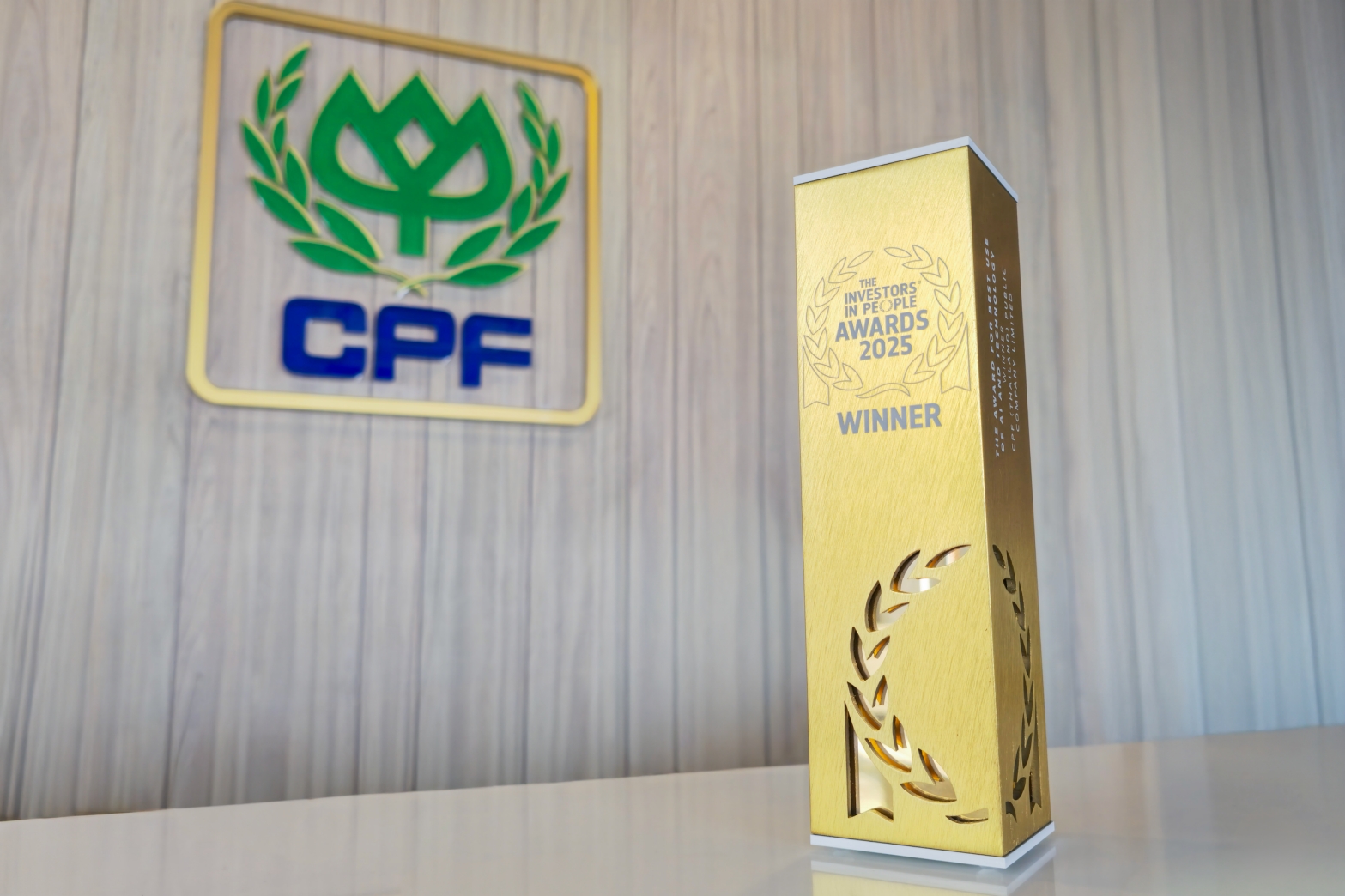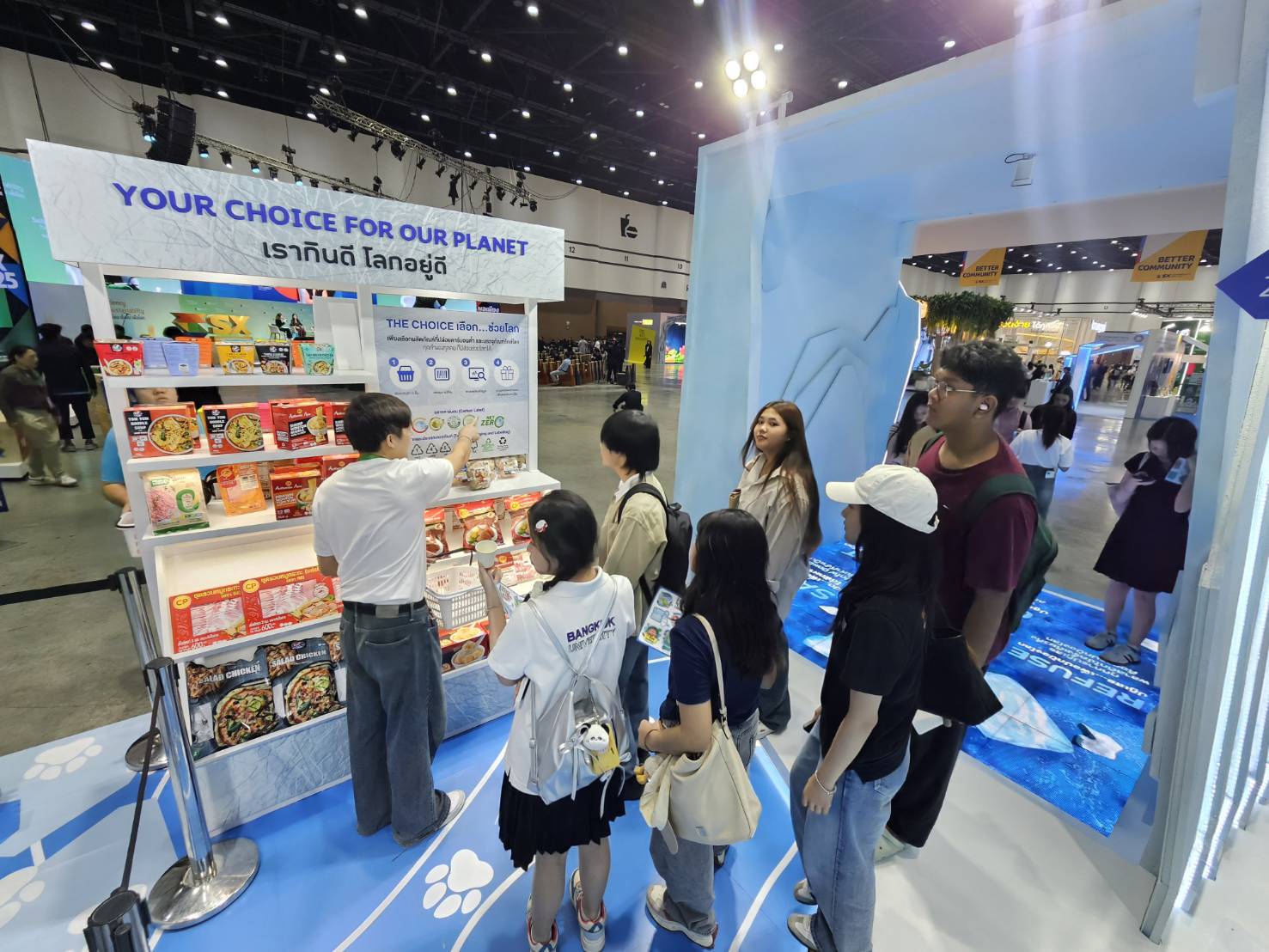

Swine farms at Charoen Pokphand Foods Public Company Limited (CP Foods) are transitioning toward renewable enery sources from solar panels, following a success of biogas project in all of the company’s spig farms, in an effort to decarbonizing the operation and, subsequently, mitigate the impact of climate change.
The adoption of renewable energy in swine farm is a part of CP Foods’ Green Farm, a community and environmental friendly farming model. CP Foods’ Executive Vice President Somporn Jermpong says: “the company has established eco-friendly farming model, so-called, “CPF Greenfarm” in 2009. This farming model has applied a circular economy principle into the pig farm to reduce waste from the farming process, improve operation efficiency, and, ultimately, reduce CP Foods’ environmental footprint,”
Recently, CP Foods' is running a “Solar Farm” pilot project at four swine farms. Kanchanaburi farm, Sithep farm, and Phetchabun farm can generate upto 250 kilowatts. Meanwhile, Wichian Buri farm has a capacity of 200 kilowatts. From the success of the first Solar farms, CP Foods is expanding the project to six more pig farms with a total power of 1.3 megawatts, and will further implement on other of the companys farms later on.
The solar project is not the only green energy project at the pig farm. Previously, Biogas production are deployed in all of the company’ pig farms, enabling them to cut electricity costs by 50-80% of the total electricity used on the farm. Also, the waste-to-green energy source can reduces unplessant odor and greenhouse gas emissions by approximately 370,000 tons of carbon dioxide equivalent per year.
“All 98 of our pig farms in Thailand are using electricity generated by biogas. It is more efficient and having less environmental impact” Somporn said.
“Biogas System and Solar Farm Project will become two major power sources for out pig farms. It is expected to be able to replace 100% of the electricity, enabling pig farms use entirely clean energy,” he said, adding that this way, the company can to reduce carbon dioxide emissions, making the farms even more sustainable, ” said Mr. Somporn.
Aside clean energy adoption, CP Foods’ pig farms reuse recycled water from post-Biogas production within the opearation to reduce the use of water from natural sources. Moreover, surplus treated has been distribute to the nearby farmers to use as for their farms. For over 20 years, this so-called "fertilizer water” can increase their productivity, reducing the cost of chemical fertilizers, and helping the farmers to survive the drought.









